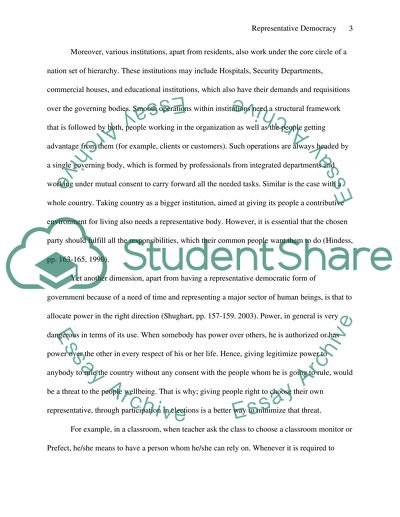Cite this document
(Does Representative Democracy Facilitate the Participation of the Term Paper, n.d.)
Does Representative Democracy Facilitate the Participation of the Term Paper. Retrieved from https://studentshare.org/politics/1561620-having-someone-to-represent-you-means-not-acting-for-yourself-how-then-does-representative-democracy-facilitate-the-participation-of-the-people
Does Representative Democracy Facilitate the Participation of the Term Paper. Retrieved from https://studentshare.org/politics/1561620-having-someone-to-represent-you-means-not-acting-for-yourself-how-then-does-representative-democracy-facilitate-the-participation-of-the-people
(Does Representative Democracy Facilitate the Participation of the Term Paper)
Does Representative Democracy Facilitate the Participation of the Term Paper. https://studentshare.org/politics/1561620-having-someone-to-represent-you-means-not-acting-for-yourself-how-then-does-representative-democracy-facilitate-the-participation-of-the-people.
Does Representative Democracy Facilitate the Participation of the Term Paper. https://studentshare.org/politics/1561620-having-someone-to-represent-you-means-not-acting-for-yourself-how-then-does-representative-democracy-facilitate-the-participation-of-the-people.
“Does Representative Democracy Facilitate the Participation of the Term Paper”, n.d. https://studentshare.org/politics/1561620-having-someone-to-represent-you-means-not-acting-for-yourself-how-then-does-representative-democracy-facilitate-the-participation-of-the-people.


